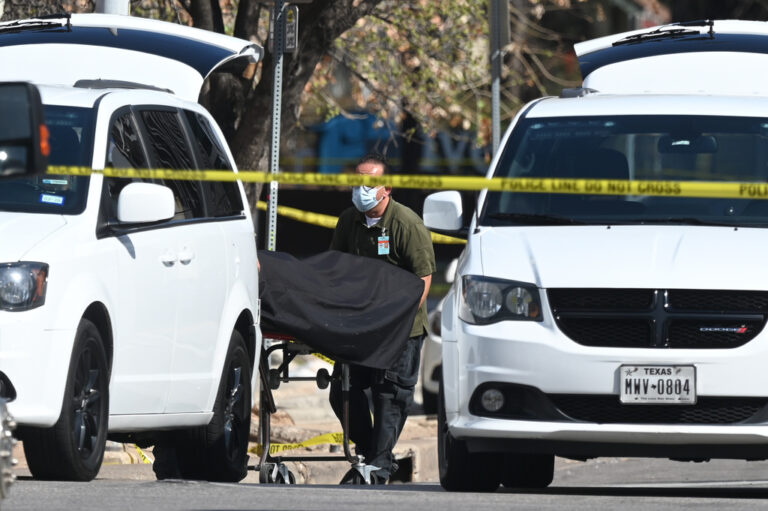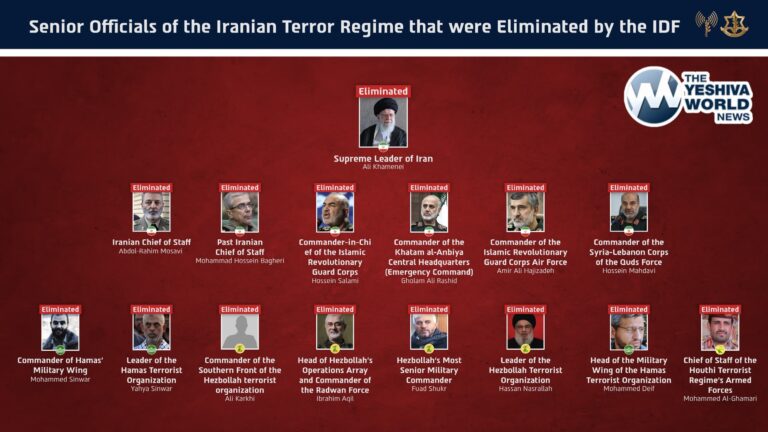Israelis may think they have it hard during the coronavirus era amid the country’s third lockdown, but if they speak to Panamanian Jews, they would realize it could be way worse. In an exclusive B’Chadrei Chareidim interview, N., from the frum community in Panama, describes the situation in the Central American country.
Panamanians have been in lockdown for eight months – which means that people are sitting at home and are not allowed to leave except for essential purposes. There were about five or six months in lockdown from after Purim through September, when it was lifted for several months, and about two months ago the lockdown was reimposed following a surge in the infection rate. Even when Panamanians do leave their homes for essential purposes, they are not allowed to go out accompanied by their spouses and children. Two days a week are designated for men to go out on errands and three days a week are designated for women to go out.
N. said that he was amused by Israelis’ dramatic reactions to the announcement of the third lockdown. “Imagine if it would be forbidden to leave the house at all! There’s a curfew – not only from 7 p.m. to 7 a.m. but the entire day. And not one or two days but eight months. That’s how we’ve been living, starting from a bit after Purim of last year.”
Interviewer: “What do you mean by curfew? You can’t go out at all – even for shopping – or you can leave for essential things?”
N.: You can say that the children are really in a full curfew. The adults are allowed to leave to buy essential items at certain hours of the day according to the last number on their identity cards – the men on Tuesday or Thursday and the women on Monday, Wednesday, or Friday. So the men have two hours a week to go out and the women have the privilege of having three hours a week to go out.”

Interviewer: What happened when the lockdown was lifted?
N.: After months of a full lockdown, there was a respite of about three months – a bit of freedom. For example, we could go to a nearby park, this was a mamash an experience – but only on Friday, Shabbos and Sunday. But all the stores were still closed.
Interviewer: How did you manage with clothes and shoes for the winter?
N.: We don’t have a winter here. It’s like summer all year long – hot. But it was definitely very hard when we wanted to buy new clothes for Pesach or Rosh Hashanah. All the stores were closed – we couldn’t even buy socks or shoes. We ordered some stuff online from the US and when the businesses here began to realize how long the lockdown was lasting, they began publicizing their Whatsapp numbers. They would send pictures of products on Whatsapp by request. After a while, a few stores opened websites and we were able to order stuff online. But it isn’t a smooth process and the selection is minimal.
“The second day of Rosh Hashanah this year was on Sunday, a day when it’s forbidden to go out at all. But we risked going out to hear the Shofar. We began getting ready to leave but the children complained that their shoes don’t fit them – for good reason of course since they grew since Purim.
“We managed to get our son’s shoes on but our daughter’s shoes wouldn’t go on no matter how hard we tried. In a rush not to miss the shofar, we dug up an old pair of shoes from our older daughter that was two sizes too big. Then we ran to shul on the empty streets, terrified that the police would catch us.”
Interviewer: How has the situation affected the Jewish community economically?
N.: The country stopped for eight months, which led to the closing of thousands of stores and businesses, many owned by Jews. The malls were closed, construction ended. The many kosher restaurants here are in dire financial straits.
“The economic boom among the Jews not only stopped but collapsed onto itself. The extent of the disaster can’t be estimated and who knows how long it will take until it can be rehabilitated, if at all.
“We’re now back in full lockdown. Schools and pre-schools are completely closed. Children haven’t met with their friends in almost a year. But Baruch Hashem, there are lessons on Zoom and the children can learn and “meet” with others. It’s hardest for the teenagers who are yearning to go back to their normal social lives but are instead imprisoned in their homes.
“The shuls are also closed. We tried to open the Kollel, but we repeatedly had to go into quarantine so instead we’re learning from home with chavrusas by telephone or Zoom.
Interviewer: What about salaries for teachers? And what do other employees do? How are they making a living?
N.: Due to financial difficulties, they significantly lowered the salaries of teachers and managers. There are institutions that cut back salaries by 40% or even 50%. Unlike the situation in Israel, we don’t have Bituach Leumi or paid leave – it doesn’t exist. It’s very difficult for people to make it, especially since the cost of living is so high here. Some teachers moved to Argentina (since they’re anyway teaching online) where the cost of living is lower.”
Panama is home to about 12,000 – 14,000 Jews, the largest Jewish community in Central America, with most of the Jewish population living in the capital – Panama City. There are a number of shuls, schools and a thriving kosher food scene, with about 20 kosher food establishments, a handful of caterers and about 15 bakeries that offer kosher options.
(YWN Israel Desk – Jerusalem)












3 Responses
Send them Donald trump and he’ll show those stupid politicians how to reopen. I think he’s looking for a new job right now
Rachmana litzlan! Yehi ratzon that their situation should get better right away!
Wow that’s crazy!!!
Btw, I was wondering where is Panama located, somewhere in Africa or Asia? I’ll google it